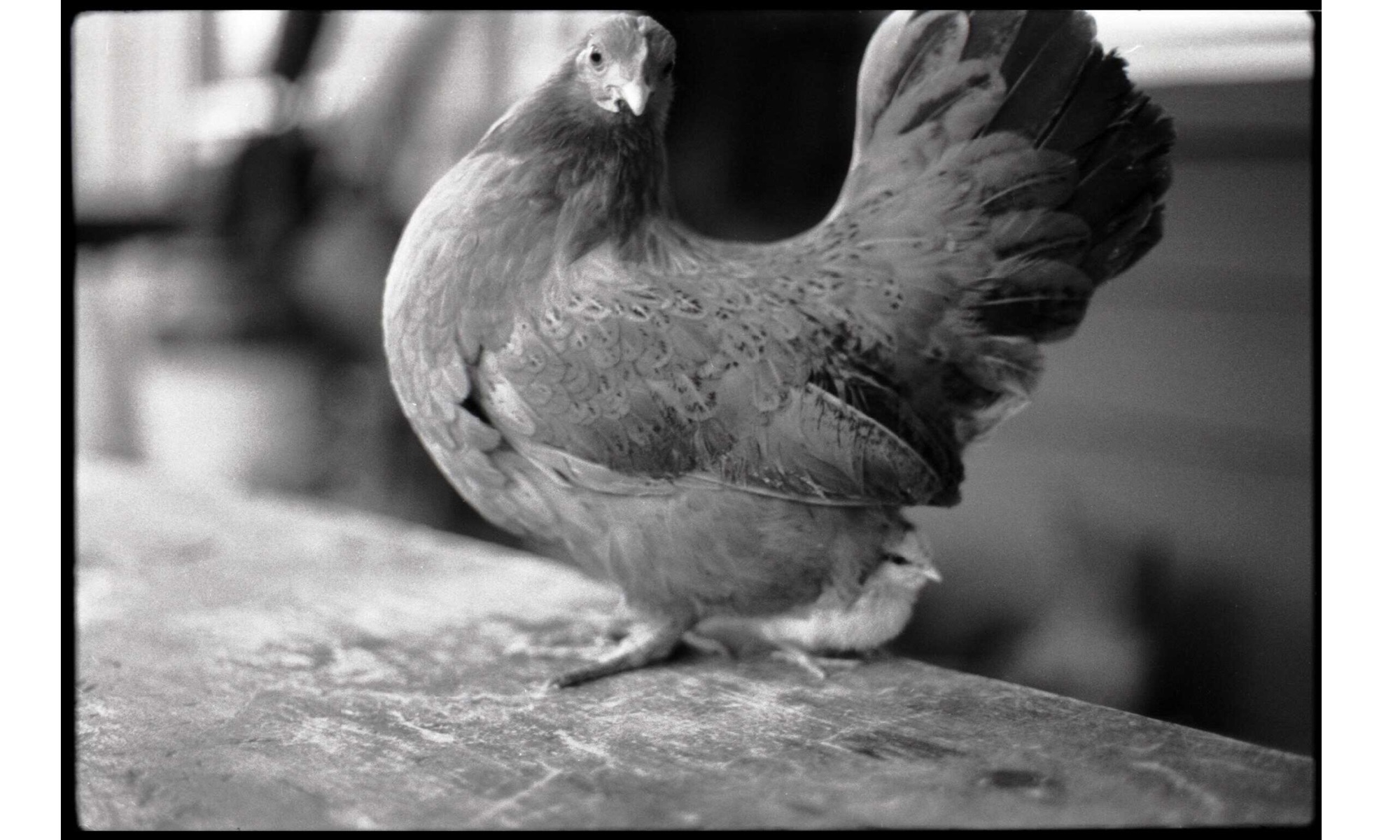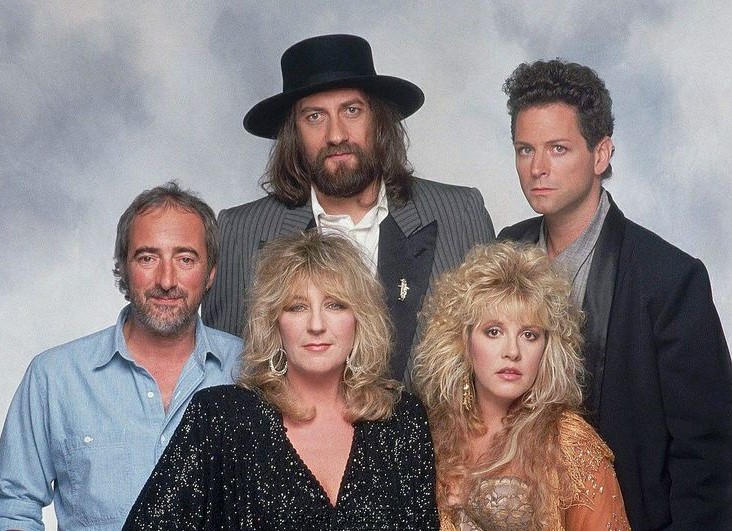#35 – Book of Love (Buckingham; Dashut, Richard) Mirage (1982)
“Book of Love” is a pretty straightforward song about having to deal with a broken heart while your former love is still around. (Again, does Lindsey write any Fleetwood Mac songs that aren’t about Stevie Nicks?) What I love most about this song, however, is the heartfelt, emotional way Buckingham sings it, especially the chorus. You can hear the pain in his voice as he channels that upper register but harnesses it for heartbreak rather than the shrieks and howls that he often uses in his live tracks from this era.
Buckingham’s work on Mirage was interesting as well, for while he certainly moved back to a more pop sensibility after his forays into punk experimentalism on Tusk, that influence is still there. While the soundscape of his songs is more layered than his tracks on Tusk, there is still a sparseness that opens up the song. The use of his colleagues on backing vocals has shifted to provide that layering, reminiscent of early Mac, but still with an edge that feels more of the time. As always, Buckingham’s guitar work is stellar; crisp and intricate and this song features a fantastic bass line from John McVie. There is clearly a new wave/punk spirit behind the pop songwriter. This song, along with a couple other Buckingham cuts on Mirage, were co-written with the album’s co-producer, Richard Dashut, who had been involved since the Buckingham Nicks days.
#34 – Not That Funny (Buckingham) Tusk 1979
When Tusk was released, the Lindsey Buckingham track that most captured me was “Not That Funny,” a rather whacky, offbeat number with a really unusual sound. I couldn’t get enough of this song, found it strangely compelling, and I think, like Lindsey, who wrote this song in response to the late ’70’s punk movement, helped usher me from the smooth grooves of the 70’s into the new style of music that defined the 80’s.
“Not That Funny” was almost completely driven by the grungy, distorted chunkiness of what I coined, “the Tusk guitar,” augmented by the annoyingly catchy, warped twanging of another guitar that faded in and out. The whole sound of this song was unusual, with Lindsey singing the entire vocal track in a plank position, with a microphone taped to the tile floor of a recreation of his home bathroom.
This, along with “Tusk” are arguably the weirdest songs ever recorded by Fleetwood Mac, and it’s no surprise that the live version retained Lindsey’s vocal eccentricities, but lost some of the wildly odd instrumentation. However, Christine stepped in with a funky piano accompaniment to fill in for the twangy, high-pitched acoustic guitar work, and the live version ends up becoming an extended jam session while Lindsey vocalizes his pain and eccentricity.
Lyrically, who quite know what this song’s all about, but it’s definitely coming from a dark place, despite being dressed up with all the offbeat sounds. “All your hope is gone… I said it’s not too funny, is it?” I still prefer the quirky studio version, and I do love playing this on the piano. In some ways I think this song informed some of my musician sensibility during my brief tenure in a punk band called “Psyclone” in the early 80’s.
#33 – Never Forget (McVie, C.) Tusk (1979)
Many fans of the Tusk album praise it by saying how the experimental quirkiness of Buckingham’s song is perfectly offset by the beauty and sweetness of McVie and Nicks’ contributions. Four of the ten tracks from Tusk that appear in my Top 50 are from McVie, and I would certainly rank them pretty high on the “beauty and sweetness” scale, none, perhaps, as highly as “Never Forget.” The closing track on Tusk, this sweet, melodic song is a simple song about love and remembrance that wraps up the adventure so aptly and so beautifully.
The gentle fade in with Christine’s electric piano, Lindsey’s acoustic guitar, and John McVie’s rambling bass interweaving so beautifully, with Mick’s driving rim shots moving the song forward. When Christine’s voice slides in you just feel so warm and comforted, and Buckingham and Nicks’ backing vocals glide along like a 70’s mellow rock classic. Little touches like Lindsey’s gentle electric guitar licks, and Christine’s organ augment the song as it carries the listener along on a gentle, warm wave of fond memories. The fade out with the three vocalists telling us that “It’ll be all right” just makes you feel like it really will.
#32 – Seven Wonders (Stewart, Sandy; Nicks) Tango in the Night (1987)
Other than one standout track on Tusk, and this cut from Tango in the Night you will notice that I lose interest in Stevie’s musical contributions after Rumours. I don’t know if she just saved her best songs for her solo career at that point, or I just found her becoming a bit of parody of herself, but her mystical, nonsensical meanderings didn’t catch me the way her early work did. But another interesting thing happened in the mid-80’s and the release of her second solo album, The Wild Heart, she started working with Sandy Stewart. Sandy sang and played keyboards on Nick’s The Wild Heart album, and co-wrote three of the songs, including the Top 20 single, “If Anyone Falls.” Stewart released a solo album, Cat Dancers, which remains one of my favorite little known albums of the 80’s, and a follow-up album as a band called Blue Yonder. While her solo career never took off, she began writing hit songs for such performers as Nicks, Tina Turner, Belinda Carlisle and others.
Stewart sent a demo of “Seven Wonders” to Fleetwood Mac during the recording of Tango, but didn’t include the lyric sheet. Nicks misheard one line of the lyrics as, “all the way down to Emmaline,” her sole contribution that got her a songwriting credit alongside Stewart. Nicks said of the moment, “I had become so attached to the name Emmaline that we kept it in and she gave me a small percentage.” It makes you wonder what the original line was.
For me it’s a great, upbeat, pop track for Nicks, and finds her in fine vocal form. The layered harmonies in the chorus are reminiscent of 70’s Mac. Fleetwood adds some fine rhythmic layering with added percussion, and it doesn’t sound overproduced despite all the synth work. And even though it’s just a performance piece, I enjoy the whimsy of the video, and the playful interplay between the members which you don’t often see. And Christine looks fantastic.
#31 – Why (McVie, C.) Mystery to Me (1973)
Mystery to Me was a great album for Christine McVie songs. All four of the albums tracks to hit the Top 50 come from McVie, and she really stretches her writing and experiments with some different styles here. “Why” is certainly a good example of Christine pushing on the boundaries of her traditional musical style. While lyrically, the songs fits squarely into McVie’s wheelhouse, lamenting over the end of a relationship, but knowing it’s time to move on, musically it’s pretty unique for her.
The song begins with a lengthy intro featuring guitarist Bob Weston’s trademark slide guitar, before sliding into the lovely acoustic guitar and piano that seem like more familiar McVie territory, melodic as ever. Honestly, the music and lyrics of the opening stanzas meld so perfectly… it sounds like the gentle dawning of a new day that’s filled with melancholy, yet somehow helpful as well. Weston’s guitar and McVie’s organ providing beautiful bridges between the verses, along with some ARP string synthesizers bringing additional texture. As always, Mick Fleetwood’s drums and John McVie’s bass add a subtle, yet complex foundation. Then McVie and Welch sing the beautiful refrain together to take us to a slow outro that brings us right back to where we started. It’s a truly lovely song that is a great example of how the music and lyrics match perfectly.
This is one of the songs from the pre-Buckingham/Nicks days that the band performed live for a while, and the closing refrain, that blended McVie, Nicks and Buckinghams’ voices elevated the song to new heights. While the live version lacks the complexity of the studio track, it’s beautiful in its own right. McVie’s singing just makes me tear up, and Buckingham’s guitar-work is stellar; I love the guitar/organ interplay after the second verse. John McVie gets his moment to shine, and it’s lovely to hear Nicks harmonize back when she had an upper register. I’ve included both the studio and live version below.

